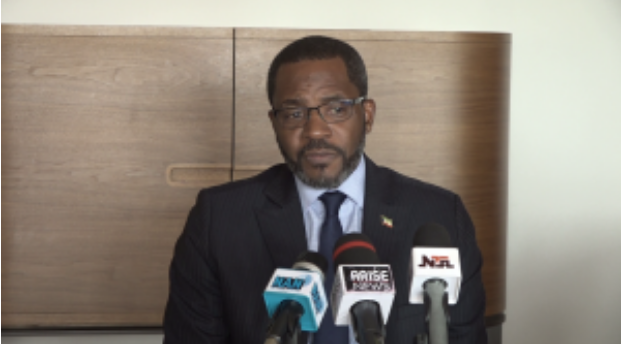Equatorial Guinea, says increasing storage capacity of refined oil and gas products is a viable solution to resolving the challenge of fuel scarcity.
Mr Gabriel Lima, Minister of Mines and Hydrocarbons of Equatorial Guinea, made this known on Wednesday, while responding to questions from journalists, during a Media briefing organised by the country’s embassy in Abuja.
Lima said that African countries could emulate this mode of operation from developed countries, who were not oil producing nations, but did not face the challenge of fuel scarcity.
The Minister explained that with increased storage capacity, countries would have enough to release for citizens for use until the challenge of that moment was resolved.
“One of the things that we are missing is not the issue of refining capability, but the issue of storage.
“What we need to do is look at countries like the Netherlands, the United States; whenever they have problems, they do not just focus on the refining capabilities, what they do is to release storage.
“So what one needs to evaluate is; “how can the Netherlands, being a small country, have sufficient supply of what they do not produce?
“The reason is that they have a big tank farm of storage.
“So the storage capacity is very important. The idea is for you to have a storage that could last for six months to one year.
“One of the things we have done in Equatorial Guinea is, because of non viability of refineries for our light crude, we have focused on increasing our capacity of stocking, which is the most important thing.
“The more storage that you can build, the more you can save, so I think strategic stocking in different places like European does, will solve the problem of fuel scarcity.
Lima therefore, recommended that Nigeria looked into adopting the same storage method to curb the incessant fuel scarcity in the country.
“Nigeria is a very big country, and I think the solution for us is to increase the capacity of storage,” he said.
The minister decried the lack of an functional refineries in Nigeria and Equatorial Guinea, noting that this was in spite of the fact that Africa’s crude was very light, compared to other European countries.
He reiterated that expanding storage capacity was still the viable solution to ending fuel crisis in African countries.
